
Hugo Gernsback was a Luxembourgish–American editor and magazine publisher, whose publications included the first science fiction magazine, Amazing Stories. His contributions to the genre as publisher were so significant that, along with the novelists H. G. Wells and Jules Verne, he is sometimes called "The Father of Science Fiction". In his honor, annual awards presented at the World Science Fiction Convention are named the "Hugos".
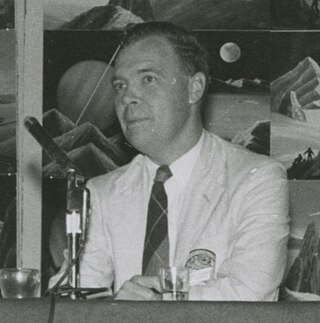
Harry Clement Stubbs, better known by the pen name Hal Clement, was an American science fiction writer and a leader of the hard science fiction subgenre. He also painted astronomically oriented artworks under the name George Richard.
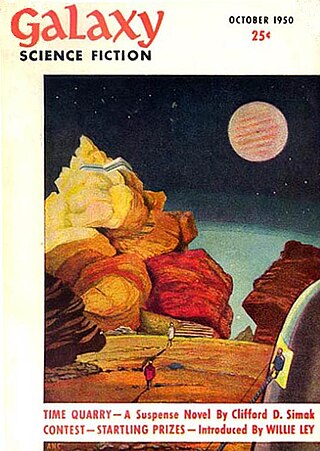
Galaxy Science Fiction was an American digest-size science fiction magazine, published in Boston from 1950 to 1980. It was founded by a French-Italian company, World Editions, which was looking to break into the American market. World Editions hired as editor H. L. Gold, who rapidly made Galaxy the leading science fiction magazine of its time, focusing on stories about social issues rather than technology.
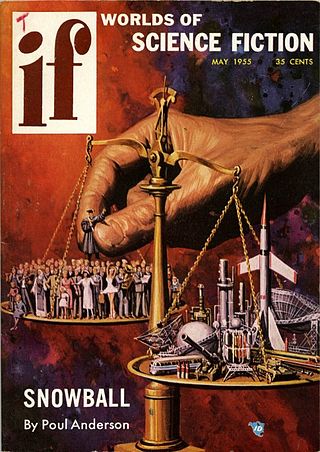
If was an American science fiction magazine launched in March 1952 by Quinn Publications, owned by James L. Quinn.

Asimov's Science Fiction is an American science fiction magazine published by Penny Press and edited by Sheila Williams. It was launched as a quarterly by Davis Publications in 1977, after obtaining Isaac Asimov's consent for the use of his name. It was originally titled Isaac Asimov's Science Fiction Magazine, and was quickly successful, reaching a circulation of over 100,000 within a year, and switching to monthly publication within a couple of years. George H. Scithers, the first editor, published many new writers who went on to be successful in the genre. Scithers favored traditional stories without sex or obscenity; along with frequent humorous stories this gave Asimov's a reputation for printing juvenile fiction, despite its success. Asimov was not part of the editorial team, but wrote editorials for the magazine.

The Magazine of Fantasy & Science Fiction is a U.S. fantasy and science fiction magazine, first published in 1949 by Mystery House, a subsidiary of Lawrence Spivak's Mercury Press. Editors Anthony Boucher and J. Francis McComas had approached Spivak in the mid-1940s about creating a fantasy companion to Spivak's existing mystery title, Ellery Queen's Mystery Magazine. The first issue was titled The Magazine of Fantasy, but the decision was quickly made to include science fiction as well as fantasy, and the title was changed correspondingly with the second issue. F&SF was quite different in presentation from the existing science fiction magazines of the day, most of which were in pulp format: it had no interior illustrations, no letter column, and text in a single-column format, which in the opinion of science fiction historian Mike Ashley "set F&SF apart, giving it the air and authority of a superior magazine".

Gordon Van Gelder is an American science fiction editor. From 1997 until 2014, Van Gelder was editor and later publisher of The Magazine of Fantasy & Science Fiction, for which he has twice won the Hugo Award for Best Editor Short Form. He was also a managing editor of The New York Review of Science Fiction from 1988 to 1993, for which he was nominated for the Hugo Award a number of times. In 2015, Van Gelder stepped down as editor of Fantasy & Science Fiction in favor of Charles Coleman Finlay, but remains publisher of the magazine.

John Joseph Adams is an American science fiction and fantasy editor, critic, and publisher.

Patrick James Nielsen Hayden, is an American science fiction editor, fan, fanzine publisher, essayist, reviewer, anthologist, teacher and blogger. He is a World Fantasy Award and Hugo Award winner, and is an editor and the Manager of Science Fiction at Tor Books.
Locus: The Magazine of The Science Fiction & Fantasy Field, founded in 1968, is an American magazine published monthly in Oakland, California. It is the news organ and trade journal for the English-language science fiction and fantasy fields. It also publishes comprehensive listings of all new books published in the genres. The magazine also presents the annual Locus Awards. Locus Online was launched in April 1997, as a semi-autonomous web version of Locus Magazine.

David Geddes Hartwell was an American critic, publisher, and editor of thousands of science fiction and fantasy novels. He was best known for work with Signet, Pocket, and Tor Books publishers. He was also noted as an award-winning editor of anthologies. The Encyclopedia of Science Fiction describes him as "perhaps the single most influential book editor of the past forty years in the American [science fiction] publishing world".
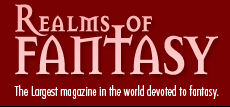
Realms of Fantasy was a professional bimonthly fantasy speculative fiction magazine published by Sovereign Media, then Tir Na Nog Press, and Damnation Books, which specialized in fantasy fiction, related nonfiction and art. The magazine published short stories by some of the genre's most popular and most prominent authors. Its original publisher was Sovereign Media, and it first launched with the October 1994 issue. It was headquartered in Herndon, Virginia.
John Gregory Betancourt is an American writer of science fiction, fantasy and mystery novels, as well as short stories. He is also known as the founder and publisher, with his wife Kim Betancourt, of Wildside Press in 1989. In 1998, they entered the print on demand (PoD) market and greatly expanded their production. In addition to publishing new novels and short stories, they have undertaken projects to publish new editions of collections of stories that appeared in historic magazines.
John C. "Bud" Sparhawk is an American science fiction writer. He writes humorous science fiction, in particular the Sam Boone series of short fiction.
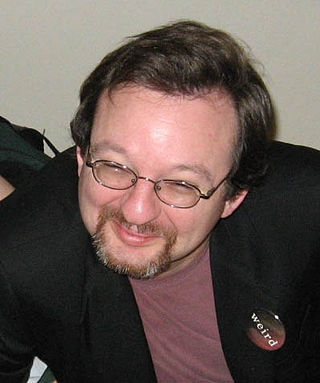
Sean Wallace is an American science fiction, fantasy, and horror anthologist, editor, and publisher best known for founding the publishing house Prime Books and for co-editing three magazines, Clarkesworld Magazine, The Dark Magazine, and Fantasy Magazine. He has been nominated a number of times by both the Hugo Awards and the World Fantasy Awards, won three Hugo Awards and two World Fantasy Awards, and has served as a World Fantasy Award judge.
Camille Cazedessus II, also known as "Caz", is an American editor and publisher. Known for his works about Edgar Rice Burroughs and pulp fiction, he has published over 250 periodicals on the topics since 1960 under the titles ERB-dom, The Fantasy Collector and, since 1997, Pulpdom. He has also written about Kit Carson and taught Western history.

Aboriginal Science Fiction was a high-circulation semi-professional science fiction magazine started in October 1986 by editor Charles Ryan. After releasing 49 issues it ceased publication in the spring of 2001. In 2002 the rights to Aboriginal Science Fiction were acquired by Absolute Magnitude.
DNA Publications was an American publishing company that existed from 1993 to 2007 and was run by the husband-and-wife team of Warren Lapine and Angela Kessler. Initially based in Massachusetts, DNA Publications relocated to Radford, Virginia. As of 2004, it was the second-largest genre magazine publisher in the United States. Its first publication, in 1993, was the magazine Harsh Mistress, which Lapine produced in collaboration with Kevin Rogers and Tim Ballon.
Warren Lapine is a speculative fiction writer and publisher.













